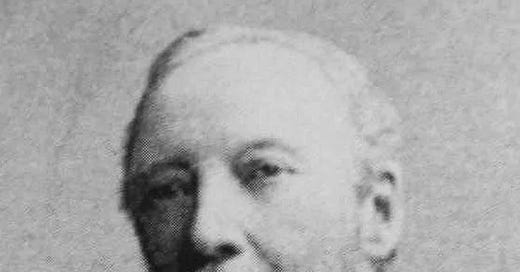Richard Hobson, a 19th century Anglican pastor, devoted his life to serving the people of a poverty-stricken community in Liverpool, known as Windsor.
It was a hard task. The work at St Nathaniel’s grew from 6 people in a cellar to 3,000. J.C. Ryle commended him as an example to others.
Here are 11 lessons from his extraordinary life
1. Value the poor
Richard Hobson pastored in a poor community in Victorian Liverpool. Although he hadn’t pushed for it, he was invited to go to a richer parish.
Hearing this, a young woman visited him with her cheque book in hand. Converted 2 months ago, she said she'd pay anything for him to stay. He refused her gift and never considered leaving the poor again.
How many men see poorer areas as a stepping stone, rather than committing to serve there for the long haul?
2. Focus on local area
As an Anglican, Hobson was given a defined parish of 4,500. He was utterly devoted to its well-being and encouraged other men to do the same:
"I am of opinion that men with 'cures' of even a thousand souls should refuse to well-nigh any external work, lest it should trench upon their time, to the neglect of parochial duties."
He is a great example to us all to put the priority on local ministry.
3. The power of visitation
Hobson would visit 75 families a week.
It’s worth saying these were brief visits and many would turn him away on the doorstep. But he would always read, pray or at the least share some Christian words.
His autobiography reveals many encouraging stories of personal encounters on the doorsteps of his community.
4. Fruitfulness in the midst of depression
There were times where Hobson wrestled with depression. He even had to take months from his work due at the advice of his friend and Bishop J.C. Ryle.
There are certainly lessons of overwork. But it is also a good reminder for those who struggle with depression that it is not uncommon. Indeed, countless faithful servants have had to carry this burden but remained fruitful.
5. An example of singleness
Hobson never intended to be single. But as his life went on he claimed "God had kept me single for himself". His industriousness may have been impossible for a married man. In a time where singleness is a hot topic, such men's example is important
6. Friendship
As mentioned before, J.C. Ryle kept watch on him despite his struggles with depression.
Each pastor needs friends who can tell the harsh truth, such as Ryle did here:
"God sometimes requires us to do less that we may last the longer and do more, and sometimes requires us to learn the lesson that He can do without us"
7. Simplicity
Hobson rebuked the verbose nature of many preachers. What these uneducated men and women needed was simplicity.
He advised one curate:
"Read the people in your parish. Study them. Mark well their habits of thought, their special needs, and learn to adapt your ministry to meet those needs."
8. Ministry to children
Like many Victorians, much fruit for Hobson came from his involvement in a Ragged School. Early on, he put a lot of time into children’s ministry. Since Hobson was there for the long haul, he was willing to invest time into children.
He never saw kids as "beneath" a pastor's role.
9. Preparation of God
Hobson was born and raised in Ireland. Providentially, this equipped him perfectly for the parish of Windsor which was full of Irish immigrants.
Who knows how God uses your past. But you can guarantee he uses it too.
10. Importance of prayer
Hobson kept a record of the requests his church prayer meeting. When prayers were answered, he shared this at prayer meetings to inspire those praying with him.
This motivated the fervency of prayer that won many blessings.
11. Expository preaching
Each year Hobson started a new book and preached it through verse-by-verse "I am still of the opinion that the best mission is the all-the-year-round mission of constant uninterrupted preaching and teaching the Word of Life"
Conclusion
Many more examples could be given .I'd really recommend "Richard Hobson of Liverpool: A Faithful Pastor" A very easy read but full of encouragements.
Of course, it wasn’t just men who served in Victorian England. You may find it interesting to hear of a similar work conducted by Lavinia Bartlett: Spurgeon’s Greatest Evangelist.





